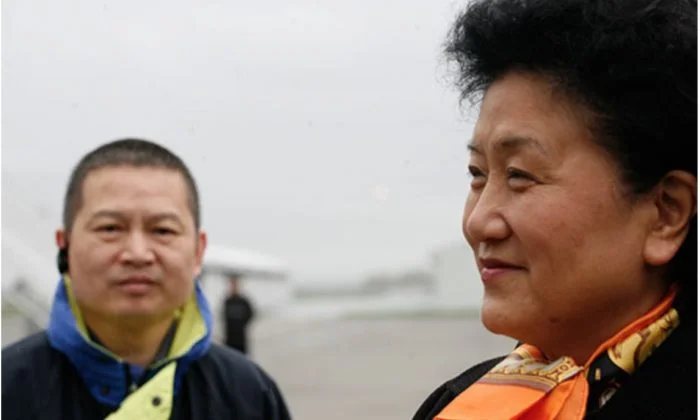Updated WeChat Privacy Policy Deprives All Privacy and Rights of Users
Overseas WeChat users are receiving notifications to bind their cell phone numbers with their WeChat accounts. If they use overseas numbers, they will need to switch to the overseas version of WeChat, and sign new service terms and privacy agreement, which virtually deprive users all their rights and privacy.
“Your Information is Property of Us”
According to the new service terms, “Your account name, user ID and other identifying information used in WeChat are the property of us.”
WeChat can “suspend, terminate and completely end WeChat services.”
If a user’s account is terminated or suspended by the users or WeChat for whatever reasons, “WeChat may disable, take back and reuse such accounts.”
It is not clear how “such accounts” will be “reused”, or “reused” by whom.
WeChat Owns All Rights of Users’ Content
For users’ content, the new service terms stipulate that:
“You grant us and our affiliates a perpetual, nonexclusive, transferable, sublicenseable, royalty-free, worldwide license (without charge or fee from us) to use your content for the purpose of providing, promoting, developing and attempting to improve WeChat and our other services, including new services that we may offer in the future. All such uses (with respect to your content containing personal information) are in accordance with our WeChat Privacy Policy. As part of such licenses, we and our affiliates, subject to the WeChat Privacy Policy, may copy, reproduce, host, store, process, rewrite, modify, translate, perform, publish and post your content in any media and by any means of distribution (including in future developed media and means) anywhere in the world.”
The terms also state: “We may share your content with third parties who assist us in working with them to help provide, promote, develop and improve WeChat in accordance with the WeChat Privacy Policy.”
WeChat’s “Privacy Policy” stipulates that WeChat may share users’ data with “related companies within our Group”, including Tencent International Service Europe B.V. in Holland, Aceville Pte. Ltd. in Singapore and Oriental Power Holdings Limited in Hong Kong.
WeChat may also share user data with “Service providers” and “Third Parties”.
WeChat Users Will Be Subjected to Chinese Guidelines When Interact with a Chinese User
Another tricky part of the privacy policy is, if an overseas WeChat user interacts with a Weixin(Chinese version of WeChat) users in China, “WeChat may collect, retain, share and/or store your information in accordance with the Weixin Privacy Guidelines (not this Privacy Policy).”
This means, the Chinese version of privacy policy will be applied to overseas users who interact with a Weixin user China.
The Weixin Privacy Protection Guidelines stipulate that: “When you use some features, we may collect some sensitive information from you with your consent, for example, we may collect your step information when you use the Wexin Sports feature, we may collect your cell phone contact information when you use the Recommended Contacts feature, and we may collect your location information when you use the People Nearby and Shake features.”
The Guidelines also state that “When you use the Weixin Friend Circle function, the text, photos, videos, comments, likes and other information you upload to your friend circle will be stored in our server.”
The Guidelines states: “We will not provide the above-mentioned Circle of Friends information to the public or use it for purposes other than this function unless you choose to do so or otherwise required by relevant laws and regulations.”
According to the Guidelines, Weixin will collect users’ geographic location information in order to recommend local services near if the users choose to Weixin's payment function or associate their cards with their Weixin accounts.
WeChat’s Chinese Version Weixin Will Not Ask User’s Permission
Weixin will not ask users’ permission when it collects the following information that is:
a) related to the fulfillment of the obligations of the controller of personal information under laws and regulations.
b) directly related to national security, national defense security
c) directly related to public safety, public health, and significant public interests
d) directly related to criminal investigation, prosecution, trial and execution of judgments, etc.
e) for the purpose of safeguarding the life, property and other significant legitimate rights and interests of the subject of personal information or other individuals but for which it is difficult to obtain the users’ authorized consent
f) where the personal information involved is disclosed to the public by the subject of personal information himself/herself
g) necessary for the conclusion and performance of a contract at the request of the subject of personal information
h) Where personal information is collected from information that is lawfully and publicly disclosed, such as lawful news reports, government information disclosure and other channels.
i) necessary to maintain the safe and stable operation of the products or services provided, such as the detection and disposal of product or service failures.
j) Where the controller of personal information is a news organization and it is necessary to carry out legitimate news reporting.
k) When the controller of personal information is an academic research institution and it is necessary to conduct statistical or academic research in the public interest, and when it provides the results of academic research or descriptions to the public, the personal information contained in the results is de-identified.
Users in US, Australia, UK , EU, & Singapore Are Subjected to More Terms
For WeChat users in the U.S., Australia, UK and EU, as well as Singapore, there are more specific additional terms.
The Weixin Privacy Protection Guidelines was updated on August 25, whilst the WeChat’s “Privacy Policy” was updated on August 19.
The new service terms was also last updated on August 19.
9/6/2021*





